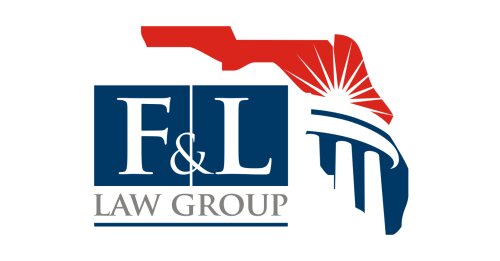Best Guardianship Lawyers in Florida
Share your needs with us, get contacted by law firms.
Free. Takes 2 min.
Or refine your search by selecting a city:
List of the best lawyers in Florida, United States
About Guardianship Law in Florida, United States
Guardianship in Florida is a legal process in which a court appoints an individual or institution to make personal, financial, or medical decisions for another person, known as the ward, who is unable to make these decisions independently due to incapacity, disability, minority, or other circumstances. Florida guardianship laws are designed to protect the vulnerable while ensuring their rights are respected. The process is guided by Florida Statutes Chapter 744 and includes several types of guardianships, such as for minors, adults with disabilities, and voluntary guardianships. The main goal is to promote the welfare and well-being of the person under guardianship, while involving the courts in supervision to prevent abuse or exploitation.
Why You May Need a Lawyer
Guardianship is a complex area of law involving strict procedures and ongoing oversight by the courts. Legal representation can be essential for several reasons:
- You are seeking guardianship for a loved one who cannot manage their medical, financial, or personal needs.
- You are being considered for appointment as a guardian and need guidance through the legal process.
- There is a dispute among family members regarding who should serve as guardian.
- You or your loved one disagree with the need for guardianship or wish to contest a petition.
- You are concerned about possible abuse or mismanagement by a current guardian.
- You want to understand your rights, responsibilities, and reporting requirements as a guardian.
- Legal assistance is required for management or protection of a minor's or incapacitated adult's assets.
A qualified guardianship lawyer can explain your options, complete and file the necessary court documents, help you navigate hearings, and provide ongoing compliance guidance.
Local Laws Overview
Florida’s guardianship laws are set forth mainly in Chapter 744 of the Florida Statutes. Here are some key aspects:
- Types of Guardianship: The state permits guardianship of minors, incapacitated adults, limited guardianships (allowing the ward to retain some rights), and plenary guardianships (involving comprehensive authority).
- Determining Incapacity: The court appoints an examining committee to assess the alleged incapacitated person's ability to make decisions, followed by a hearing to determine incapacity and need for guardianship.
- Guardian Qualifications: Florida requires guardians to undergo background checks and, in some cases, complete training courses. Certain people, such as those with felony convictions, may not qualify.
- Court Oversight: Guardians must file annual reports detailing the ward’s well-being and a financial accounting of assets under management. Non-compliance or mishandling can lead to removal or other penalties.
- Least Restrictive Alternative: Florida law stresses that guardianship should only be used when less restrictive options, like powers of attorney or healthcare surrogacy, are not sufficient.
- Termination: Guardianship can end upon court determination that it is no longer necessary, such as when a minor reaches adulthood or an incapacitated person recovers.
Frequently Asked Questions
What is a guardian in Florida?
A guardian is a person or entity appointed by a Florida court to act on behalf of a person who is unable to manage their own affairs, either fully or partially.
Who can file for guardianship in Florida?
Any concerned individual, including family members, friends, or professionals, can petition the court to appoint a guardian for someone believed to be incapacitated or for a minor.
How does the court determine if someone is incapacitated?
A court appoints a three-member examining committee of medical professionals and other experts to evaluate the individual. The court then holds a hearing and decides if the person lacks the capacity to make certain decisions.
What are the responsibilities of a guardian in Florida?
Depending on the court’s order, a guardian may be responsible for making decisions about the ward’s personal, medical, financial, and legal matters. All actions must be reported to and often approved by the court.
Can guardianship be limited to certain rights?
Yes, the court can establish a limited guardianship, allowing the individual to retain some rights and responsibilities while the guardian manages others.
Is guardianship permanent?
Guardianship can be terminated by the court if the ward regains capacity or if a minor reaches the age of majority. It can also change if circumstances or the guardian’s fitness change.
What alternatives are there to guardianship?
Alternatives may include durable powers of attorney, health care surrogates, trusts, or representative payee arrangements. These options may provide less restrictive ways to help someone manage their affairs.
How long does the guardianship process take?
The process varies but generally takes several weeks to months. It depends on the court’s schedule, the complexity of the case, and whether any disputes arise.
What is the cost of establishing a guardianship?
Costs generally include court filing fees, attorney fees, fees for the examining committee, and possible bond and annual reporting fees. Total expenses can vary widely based on the case’s complexities and local requirements.
Can a guardianship order be challenged?
Yes, interested parties, including the alleged incapacitated person, can object to the appointment of a guardian or the findings of incapacity. The court will hear evidence and make a decision.
Additional Resources
- Florida Courts: The Florida State Courts System provides guidance and forms on guardianship procedures.
- Clerk of Court - Guardianship Division: Each county’s Clerk of Court offers local procedures, forms, and information for guardianship cases.
- Office of Public & Professional Guardians: This state agency offers oversight of professional guardians and provides complaint procedures.
- Florida Bar: The Florida Bar Lawyer Referral Service can help you find qualified guardianship attorneys in your region.
- Area Agencies on Aging: These organizations provide support, guidance, and resources for seniors and their caregivers facing guardianship issues.
- Florida Department of Children and Families: Provides resources for guardianship related to minors and vulnerable adults, including information about abuse prevention.
Next Steps
If you believe you or someone you love may need a guardian, or if you have legal questions regarding an existing guardianship, it is important to take action promptly given the serious implications of these cases. Start by gathering information about the individual’s medical or financial condition and any existing legal documents. Contact a qualified Florida guardianship attorney who can review your situation and explain your legal rights and options. Begin the process early, as court proceedings can be time-consuming. If you are concerned about possible abuse or mismanagement under an existing guardianship, you should also consider reaching out to local authorities or the court for immediate assistance. Seeking professional legal guidance is the best way to ensure the ward’s interests are fully protected.
Lawzana helps you find the best lawyers and law firms in Florida through a curated and pre-screened list of qualified legal professionals. Our platform offers rankings and detailed profiles of attorneys and law firms, allowing you to compare based on practice areas, including Guardianship, experience, and client feedback.
Each profile includes a description of the firm's areas of practice, client reviews, team members and partners, year of establishment, spoken languages, office locations, contact information, social media presence, and any published articles or resources. Most firms on our platform speak English and are experienced in both local and international legal matters.
Get a quote from top-rated law firms in Florida, United States — quickly, securely, and without unnecessary hassle.
Disclaimer:
The information provided on this page is for general informational purposes only and does not constitute legal advice. While we strive to ensure the accuracy and relevance of the content, legal information may change over time, and interpretations of the law can vary. You should always consult with a qualified legal professional for advice specific to your situation.
We disclaim all liability for actions taken or not taken based on the content of this page. If you believe any information is incorrect or outdated, please contact us, and we will review and update it where appropriate.
Browse guardianship law firms by city in Florida
Refine your search by selecting a city.














